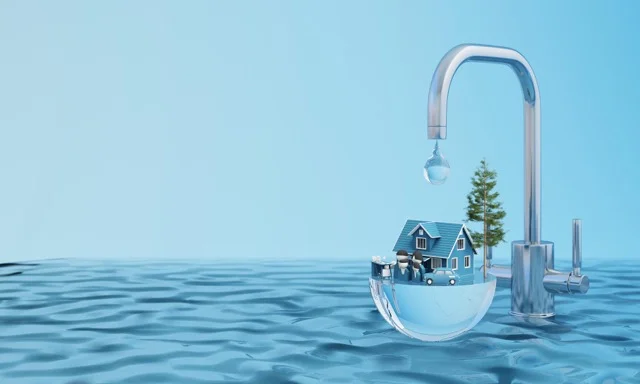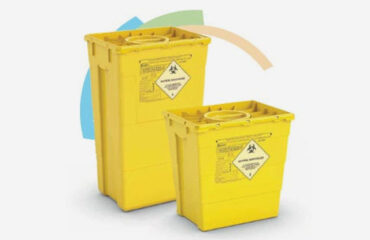The 4-Minute Rule for Reclaim Waste
The 4-Minute Rule for Reclaim Waste
Blog Article
Indicators on Reclaim Waste You Need To Know
Table of ContentsGet This Report on Reclaim WasteTop Guidelines Of Reclaim WasteReclaim Waste for BeginnersReclaim Waste Things To Know Before You Get ThisThe Reclaim Waste PDFs
Check out the types, incidents, and types of fluid waste. Residential sewage waste refers to the waste and products from a household sewage-disposal tank. This type of waste is produced by humans in residences, schools, and various other buildings. This only consists of septic containers that have a drain area. The proper administration and disposal of residential sewer waste need fluid waste to be transferred to a sewage treatment plant where the proper techniques and equipment are related to cleanse and dispose of waste.
Commercial waste commonly consists of possible risks, such as combustible materials or a blend of fluid and strong waste items, and calls for an advanced and thorough disposal procedure. The disposal of industrial waste generally involves the purification of waste prior to transport to make certain risk-free and appropriate disposal. Hazardous waste is created from by-products and overflow of industrial procedures and production.
This type of waste can not utilize the exact same sewer monitoring transport or procedures as septic or commercial fluids. The commercial waste administration procedure needs the inspection and testing of fluid waste before it goes through the disposal process (liquid waste removal). Overflow waste is the fluid waste that originates from drainage and excess stormwater in extremely populated locations or cities
Runoff waste can create contamination and flooding if not taken care of effectively. Making certain correct waste administration can stop disasters and reduce ecological harm.
Some Known Facts About Reclaim Waste.
Call PROS Services today to discover regarding our waste administration and disposal services and the correct ways to take care of the fluid waste you create.
(https://linktr.ee/leonaube33101)This so-called 'wastewater' is not just an important source however, after therapy, will be launched to our land, waterways or the sea. Utilized water from toilets, showers, bathrooms, kitchen sinks, laundries and industrial procedures is known as wastewater.

water made use of to cool down machinery or tidy plant and equipment). Stormwater, a form of wastewater, is runoff that flows from agricultural and city areas such as roofing systems, parks, yards, roadways, courses and rain gutters right into stormwater drains pipes, after rain. Stormwater moves unattended directly to regional creeks or rivers, at some point reaching the ocean.
About Reclaim Waste
In Queensland, the majority of wastewater is treated at sewer treatment plants. Wastewater is moved from domestic or industrial websites with a system of drains and pump terminals, referred to as sewage reticulation, to a sewer therapy plant. Neighborhood governments build, preserve and run most sewer therapy plants. Operators are licensed under the Environmental Management Act 1994 to release cured wastewater at an appropriate environmental standard right into rivers.
The Division of Natural Resources suggests regional governments about handling, operating and preserving sewerage systems and therapy plants. In unsewered locations, regional governments might need homeowners to install specific or family sewer treatment systems to deal with residential wastewater from commodes, cooking areas, bathrooms and washings. The Department of Natural Resources authorizes making use of household systems when they are shown to be efficient.
In some brand-new class, therapy of some stormwater to remove clutter, sand and crushed rock has begun utilizing gross pollutant traps. Wastewater treatment happens in 4 phases: Removes solid matter.
Wastewater after that streams right into large containers where solids work out and are gotten rid of as sludge. Oil and residue are skimmed from the surface. Makes use of tiny living organisms referred to as micro-organisms to break down and get rid of remaining dissolved wastes and fine fragments. Micro-organisms and wastes are integrated in the sludge. Gets rid of nitrogen and phosphorus nutrients that might cause algal blossoms in see it here our waterways and intimidate aquatic life.
How Reclaim Waste can Save You Time, Stress, and Money.
Nutrient elimination is not offered in all sewage therapy plants because it requires expensive specialised equipment. It is becoming much more common in Queensland. Clear liquid effluent produced after therapy might still consist of disease-causing micro-organisms. If this effluent is launched into waterways such as rivers or the sea, the micro-organisms will eventually pass away out.

This usually suggests wastewater has actually to be treated or impurities eliminated before it can be discharged to rivers. Many wastewater flows right into the sewerage system. Under the Act, local federal governments provide approvals and permits for environmentally pertinent activities (Periods) including wastewater releases that could have a regional impact. The division administers authorizations and licences to Ages involving wastewater launches that might have a local or statewide impact.
The Main Principles Of Reclaim Waste
Monitoring supplies accurate info about water quality and can verify that licence conditions are being satisfied. The info acquired with tracking supplies the basis for making water top quality choices.
Report this page